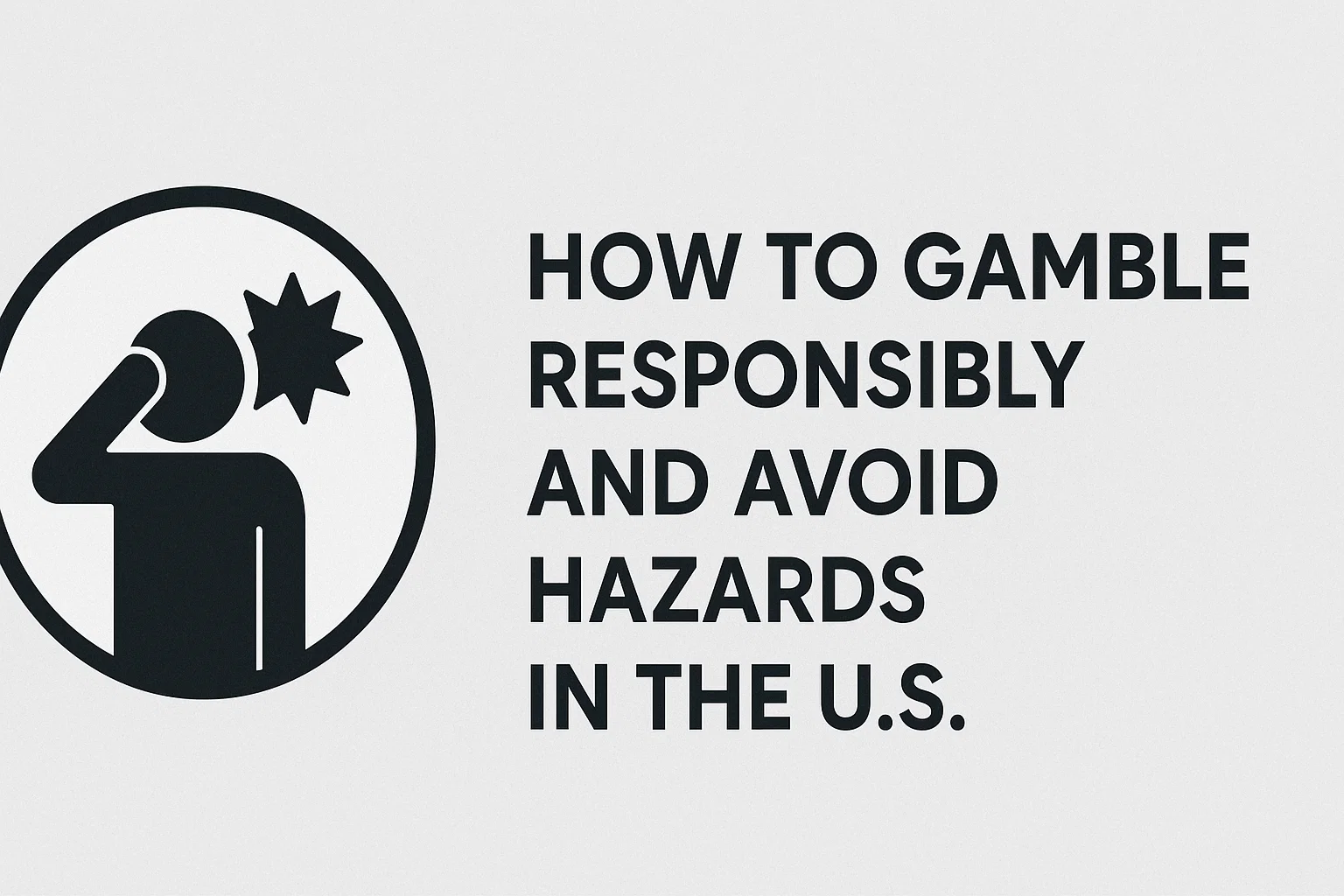
Gaming is an electrifying world of feelings, adrenaline, and winning a fortune. Have you ever seen the flip side of the coin? While it might be enjoyable, gaming also has real hazards — from spending money to becoming seriously addicted. That is why gaming responsibly and following protection policies is so crucial.
Problem gambling statistics are no laughing matter: 1–3% of the world's adult population are addicted to gambling, states the World Health Organization. That is millions of people whose lives were impacted by their bad addiction to gambling. Does that imply that you must give up your sport? Not necessarily! The secret is to do it knowingly and learn to gamble responsibly. This entails choosing an honest casino with a solid reputation, paying attention to the warning signs, and employing tried bankroll management strategies to keep in control.
Here, in this article, we will show you how to enjoy playing online casino games in the U.S. without getting into trouble. You will learn how to choose a legitimate online casino, how to control your money, and how to recognize addiction. We will debunk some gambling myths and show you how to have as much fun as possible without hurting your wallet or your brain.
How to Choose a Reputable Online Casino
Responsible gambling starts with choosing a licensed and trustful online casino. There are, regretfully, rogue operators available on the Internet who try to scam unsuspecting players. This is a step-by-step guide how to avoid scam:
- Check the license. Play U.S.-friendly casinos with licenses issued by well-known authorities such as the Malta Gaming Authority (MGA), Curacao eGaming, or New Jersey-, Michigan-, or Pennsylvania-licensed casinos. An honest license guarantees fair play and law enforcement.
- Read user comments. Look for genuine user comments at forums or Reddit. Watch out for positive reviews — they could be sponsored or fabricated.
- Verify safe payment options. Opt for casinos that offer secure payment systems such as Visa, Mastercard, PayPal, or ACH transfers. Quick and secure banking is a must.
- Know the terms of bonuses. Attractive bonuses may come with harsh wagering requirements. Always read terms before taking any offer.
- Try customer support. Contact them through live chat or email and judge how promptly and professionally they answer. Good support = reliable platform.
Golden Rule: "Bet only at licensed and regulated U.S. online casinos." One minute is all it takes to verify legitimacy, and it can spare you a world of hassle later.
Principles of Responsible Gambling: Playing Smarter
Even on a secure site, responsible gaming is the key to staying in charge. Employ these simple tips to reduce risk and increase enjoyment:
- Establish a deposit and betting limit. Decide how much you can lose — and stick to it. Establish a bet cap per game or spin, too.
- Limit yourself with self-limiting tools. Time-outs, deposit limits, or even self-exclusion plans are available at most U.S. casinos. Limit yourself if you have to.
- Never gamble with money that's borrowed or needed. Gambling is entertainment, not a quick route to wealth. Don't bet more to make up for losses or recoup what's already lost.
- Monitor your emotional condition. Don't gamble when you're angry, stressed, or using alcohol or drugs. These cloud judgment and self-control.
- Take regular breaks. Don't play for hours non-stop. Get up every 30–60 minutes. Have a walk, call your friend, or do anything else.
If you adhere to these rules, gambling is restricted to what it should be — entertainment. Have fun, not the wins.
Bankroll Management: How Not to Lose It All
Bankroll management is a major part of safe gambling. Your bankroll is the amount of money you’ve set aside just for playing. Managing it wisely means you’ll be able to keep playing without going broke.
Some common strategies include:
- Flat betting system. Wager a fixed amount (like 1–2% of your bankroll) regardless of wins or losses. This keeps your gameplay steady and low-risk.
- Martingale system. Double your wager after each loss to recoup losses incurred previously when you do win. Caution: it can drain your bankroll very fast if you have a losing streak.
- Percentage betting. Bet a proportion of your bankroll (5%, say). As your bankroll goes up or down, so do your bets. It is flexible and maintains the risk of busting low.
The #1 rule: Don't double up on losses. When things are not going your way, get out. Doubling up to try to recover losses typically makes things worse.
How to Avoid Gambling Addiction
Sometimes, what is a hobby begins starts an actual problem. Gambling addiction — also known as compulsive or problem gambling — is a brain disorder that can ruin lives.
The following are some warning signs to look out for:
- Fretting about gambling or getting angry when unable to gamble.
- Increasing amount of time and money spent gambling.
- Fighting a battle to stop or reduce gambling.
- Keeping your behavior a secret from friends and family.
- Avoiding work, relationships, or hobbies due to gambling.
If you or someone you know is exhibiting these symptoms, seek assistance. In the United States, you can call:
- National Problem Gambling Helpline at 1-800-GAMBLER
- Gambling Therapy
- Gamblers Anonymous
Remember: "If gambling is no longer fun, it's time to take a break or seek help." There's nothing to be ashamed of asking for help — it's the first step to recovery.

